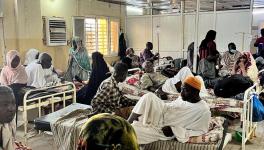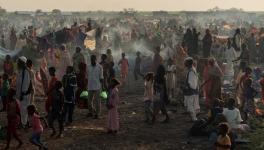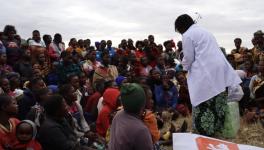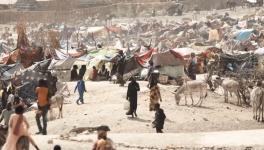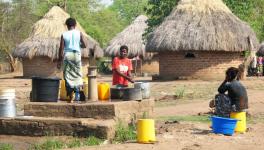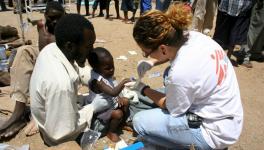MSF Urges Action to Fight Cholera at Dadaab Refugee Camp

The cholera outbreak in Dadaab refugee complex could have 'catastrophic' consequences, MSF warns
Kenya's Dadaab refugee camp is facing a serious outbreak of cholera: according to the World Health Organization, as of March 2023, Kenya had recorded more than 7,800 cholera cases and over 127 deaths. The outbreak, which began in October 2022, has seen more than 2,700 occupants of the Dadaab camp contract gastrointestinal illness.
One of the satellite complexes, Dagahaley, has been hardest hit: it accounts for around 1,100 infections alone.
"We have already seen the worst cholera outbreak in five years and the risk of other epidemics breaking out is high," Hassan Maiyaki, the country director for the French medical charity Doctors Without Borders or Medecins Sans Frontieres (MSF), told DW.
"If this occurs, it would outstrip medical capacity in the camps, with potentially catastrophic consequences. Maiyaki warned.
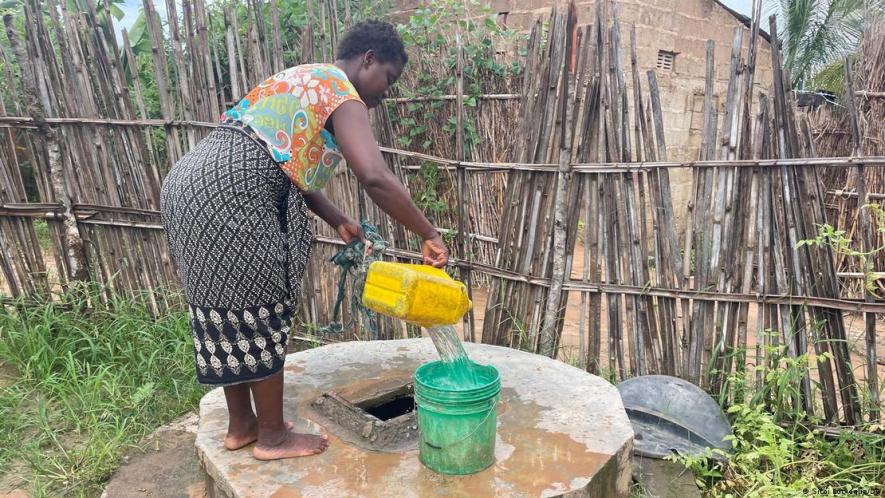
Doctors say the lack of access to clean water could contribute to a cholera outbreak
Poor sanitary conditions at the camp
Some factors that have exacerbated the situation include poor sanitary conditions within the camps, influx of refugees, overstretched resources, and dwindling donor funds.
Dr. Kapil Sharma, a medical doctor and the project coordinator for MSF in Dadaab, blamed the seventh-month-long cholera outbreak on the camp's unhygienic conditions.
"One of the main reasons for cholera, as we all know, is poor sanitary situation," Sharma told DW, adding that the camp also lacks access to latrines. "There is rampant open defecation in the camp, and less than 50% of the people have access to the latrines, so these are all compounding factors for this outbreak to increase."
Call to improve camp conditions
The medical practitioners in the area are now advocating for improvements in water, sanitation and hygiene to contain the outbreak.
Kenya's Ministry of Health and other humanitarian agencies have conducted a cholera vaccination campaign since February. They also conducted health promotions, but medical practitioners in the area say it was insufficient.
"More needs to be done in terms of water, sanitation and hygiene for this population," Kapil said, calling on more substantial support from the international community to organizations providing water, hygiene, and sanitation services in the camp.
Influx of refugees from neighboring countries
According to the UN Refugee Agency (UNHCR), Dadaab camp hosts over 43% of Kenya's refugee population.
The humanitarian crisis in neighboring countries has led to a further growth in the number of refugees at the Dadaab camp. In 2022 alone, about 100,000 refugees came into the country, 67,000 of whom found their way to Dadaab.
The new arrivals have put more pressure on the camp's capacity. "The camps are already overstretched, and the humanitarian conditions there are already at its limit," Dr. Nitya Udayraj, MSF's medical coordinator in Kenya, told DW.
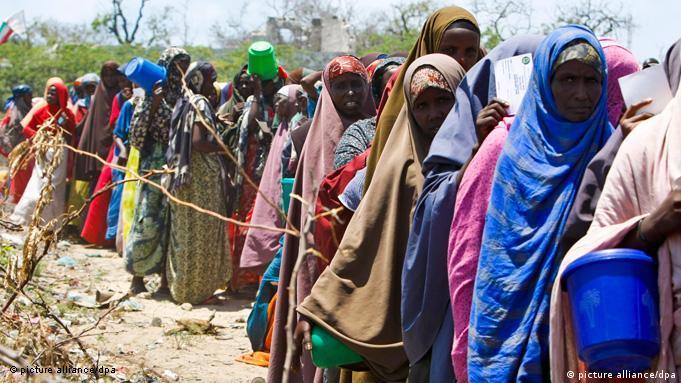
Crises in Somalia, Sudan, Ethiopia, and South Sudan have pushed many to flee to Kenya
Tens of thousands of unregistered refugees
There are currently more than 124,000 refugees within the Dadaab refugee complex who have yet to be registered.
The drought that has plagued the Horn of Africa region has exacerbated things further, since most of those coming into the camp are either malnourished, tired, or susceptible to the disease. In addition, the worsening drought in Somalia and the crises in the neighboring Sudan, South Sudan, and Ethiopia have all forced more people to seek refuge in Kenya.
Despite having a holding capacity of 35,000 people, the satellite camp of Dagahaley hosts about 140,000 refugees. Meanwhile, more continue to stream in.
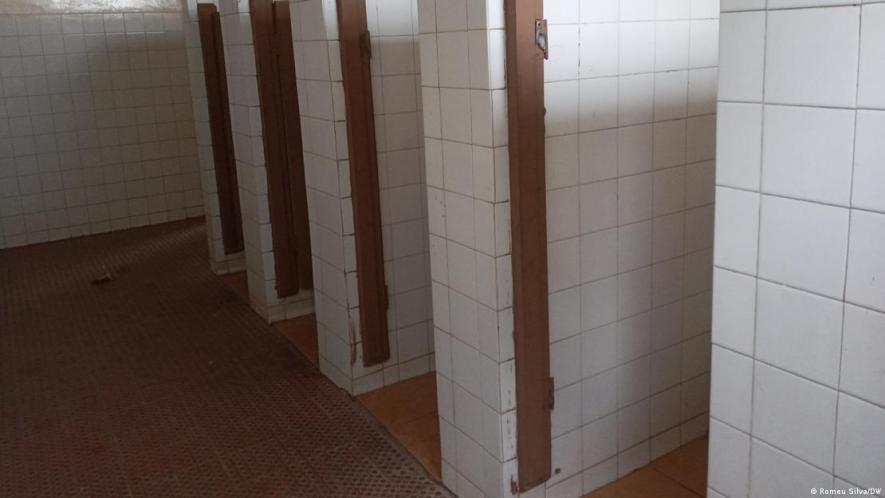
Clean toilets are vital in controlling the spread of cholera
Few doctors for thousands of people
The medical doctors are not only providing care to people within the camp, but also to an additional 14,000 people within the host community, who also require their services. This has left the medical facilities overstretched and almost running on empty if help comes in late.
"MSF calls on the international community, donors and aid agencies to respond urgently to the unfolding crisis in Dadaab, taking immediate action to address the alarming sanitary conditions and prevent the further spread of disease," Maiyaki said.
The global economic crisis has also played a part in the worsening of the situation at the camp. As a result, many aid organizations have delayed remitting funds.
"What is important is the allocation of appropriate resources for organizations responsible to provide these services as fast as possible," Kapil said.
Kenya plans new refugee camp
The Kenyan government has announced plans to reopen a fourth camp, Ifo 2, to accommodate new arrivals and alleviate the strain on resources in the existing camps.
"MSF calls on the government of Kenya and the UNHCR to find durable solutions for the refugees confined within the camps at Dadaab," Maiyaki said.
Even as MSF calls on the government to fulfill the promise urgently, other interventions like water distribution and sanitary facilities supply to the refugees have been in top gear to prevent the further spread of the disease.
"We are providing 50,000 liters of water to the outskirts population of 9,000 people," Kapil said, stressing that the organization had facilitated the construction of 150 latrines for the population. It has also provided them with plastic sheeting and maps.
The MSF health practitioner said he remains optimistic that the situation can improve. "I feel really very sad when I see this number which has really increased over the last few months," Kapil said, calling on all stakeholders to collaborate and provide essential human services "to prevent people from contracting these disease which should not happen actually."
Edited by: Chrispin Mwakideu
Get the latest reports & analysis with people's perspective on Protests, movements & deep analytical videos, discussions of the current affairs in your Telegram app. Subscribe to NewsClick's Telegram channel & get Real-Time updates on stories, as they get published on our website.









